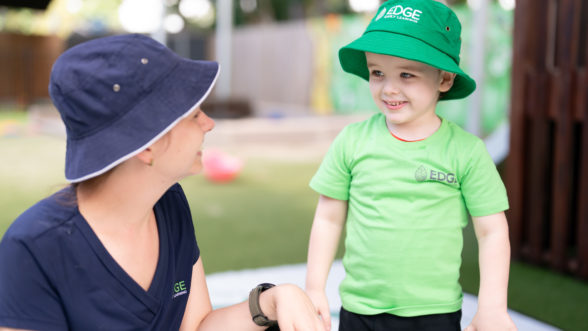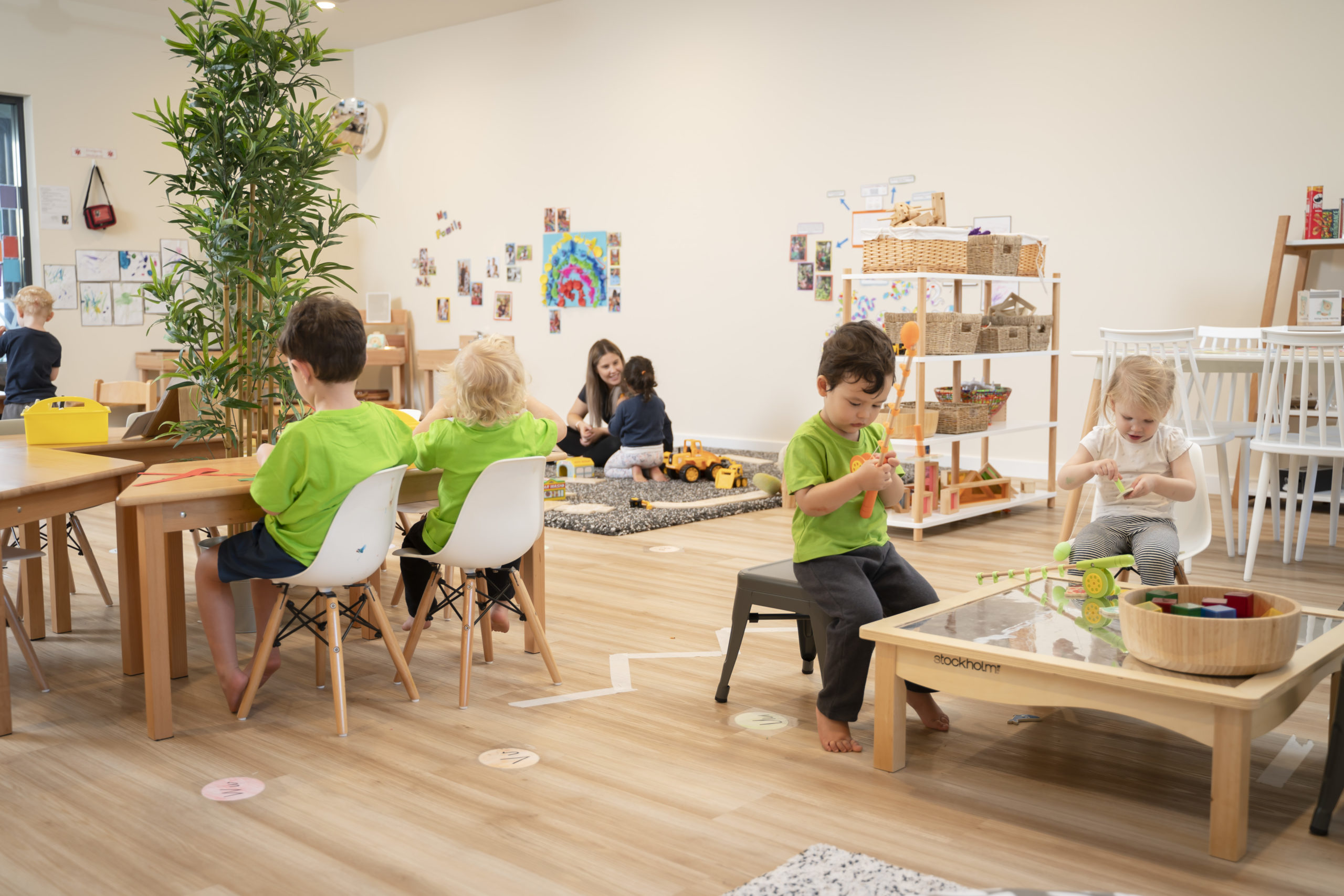
Useful tools
Top News, Useful tools
10 August, 2021

What is the Early Years Learning Framework (EYLF V2.0)?
Created by the federal Department of Education, Skills and Employment, the Early Years Learning Framework is a national quality framework for early childhood education and care. A guide for supporting and nurturing young children’s learning from birth to age five, as well as their transition to school, it was developed with a vision to provide a quality learning experience that could build success for later life.
What are the benefits of the Early Years Learning Framework (EYLF V2.0)?
The EYLF framework has a strong focus on a play-based learning approach to encourage early childhood development. This framework not only benefits the child from a growth perspective but also provides direction for early childhood educators to facilitate a child’s learning. Here at Edge, our approach to every stage of early childhood education is supported by the framework. Here’s how.
What is the Nursery Early Years Learning Framework V2.0?
In our Nursery, your child will be introduced to a world of new experiences. We focus on relationship building to ensure they are given the best start – as your child meets new people and develops communication skills through body movements and sounds, our educators will take time to respond to and acknowledge those communicative cues. Respect and care must be at the heart of these relationships to ensure your child can trust their educator and feel comfortable in the Nursery environment. Only then can they feel empowered to take the next steps in their development.
Through our Nursery, it is our goal for your child to:
What is the toddler Early Years Learning Framework V2.0?
The toddler years are when your child begins to take their literal and figurative first steps. These are the years where they navigate feelings and relationships and begin to develop identity and agency. While demonstrations of independence are particularly important at this age, our educators know that support is everything. Toddlers will be presented with a variety of options and opportunities for interaction and decision making. In line with our inquiry-based approach, these will be based on their emerging interests and pursued through a variety of different learning environments. Whether it is encouraging self-serving at mealtimes or posing different questions in conversation to extend thoughts and ideas, the way that our educators interact with your toddler will help them explore new interests and articulate those interests to educators, friends, and family.
During the toddler years, it is our goal for your child to:
What is the Kindergarten Early Years Learning Framework V2.0?
Ahh, the kindergarten years. Full of excitement and growth, your child will begin to show more interest in building friendships, playing with others, and working in teams. They may be more inclined to participate in structured games and will begin to develop social skills and competence as they start to understand the perspectives of their peers, educators, and family. In turn, they will also understand their rights and responsibilities within groups. Knowing this, we have partnered with the Australian College of Physical Literacy to implement the Active Early Learning Curriculum (AEL) tailored to this age group. The AEL Curriculum not only promotes the development of strong physical motor skills, but also supports your child in developing their social, emotional, and cognitive skills to ensure that they feel confident starting school.
During kindergarten, it is our goal for your child to:
What are the Early Years Learning Framework Outcomes V2.0?
At Edge, our Inquiry Based Philosophy is central to our approach to early childhood education. Our philosophy is supported by the Early Years Learning Framework (EYLF), which focuses on the importance of play-based learning to guide children towards achieving developmental goals across the following five learning outcomes…
Outcome 1: Children have a strong sense of identity
They feel safe, secured, and supported and can develop their emerging autonomy, inter-dependence, resilience, and sense of agency. Children can develop knowledgeable and confident self-identities and learn to interact in relation to others with care, empathy, and respect.
Outcome 2: Children are connected with and contribute to their world
Children develop a sense of belonging to groups and communities, and an understanding of the reciprocal rights and responsibilities necessary for active community participation. They respond to diversity with respect, become aware of fairness, become socially responsible and show respect for the environment.
Outcome 3: Children have a strong sense of wellbeing
Children become strong in their social and emotional wellbeing and take increasing responsibility for their own health and physical wellbeing. They learn about healthy lifestyles, improve their self-confidence, and develop resilience.
Outcome 4: Children are confident and involved learners
Children develop dispositions for learning such as curiosity, cooperation, confidence, creativity, commitment, enthusiasm, persistence, imagination and reflexivity, along with a range of skills and processes such as problem solving, enquiry, experimentation, hypothesising, researching and investigating. They can transfer and adapt what they have learned from one context to another, and resource their own learning through connecting with people, places, technologies and
natural and processed materials.
Outcome 5: Children are effective communicators
Children interact verbally and non-verbally with others for a range of purposes and engage with a range of texts to gain meaning. They can express ideas and make meaning using a range of media, while beginning to understand how symbols and pattern systems work. They can also use information and communication technologies to access information, investigate ideas and represent their thinking.
Want to know more?
Edge Early Learning provides children with a holistic learning experience and inquiry-based approach to trigger curiosity and build key developmental skills based on the EYLF V2.0. If you would like to find out more, contact one of our friendly staff or book a tour of your local Edge Early Learning Centre today!